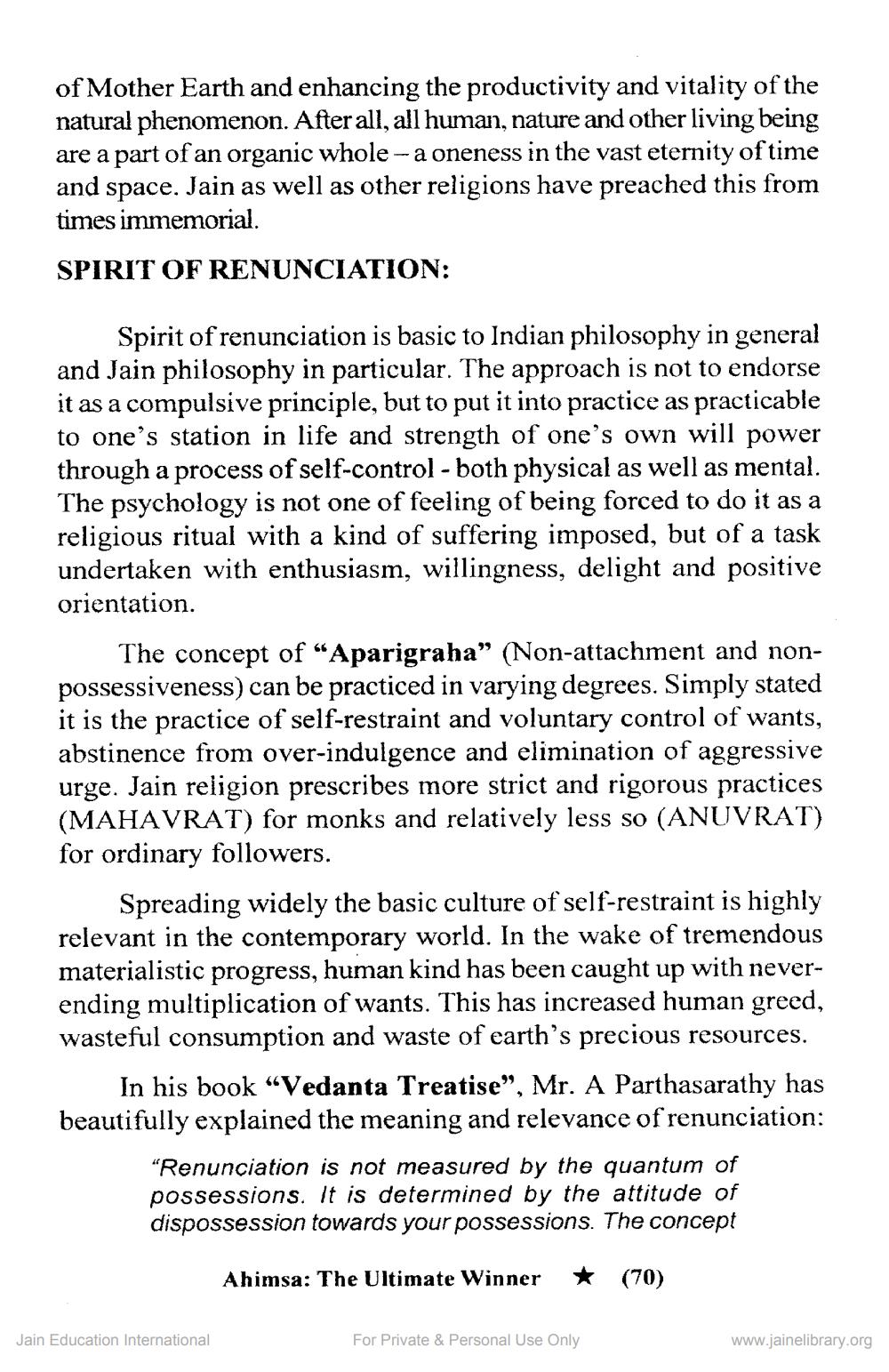________________
of Mother Earth and enhancing the productivity and vitality of the natural phenomenon. After all, all human nature and other living being are a part of an organic whole - a oneness in the vast eternity of time and space. Jain as well as other religions have preached this from times immemorial. SPIRIT OF RENUNCIATION:
Spirit of renunciation is basic to Indian philosophy in general and Jain philosophy in particular. The approach is not to endorse it as a compulsive principle, but to put it into practice as practicable to one's station in life and strength of one's own will power through a process of self-control - both physical as well as mental. The psychology is not one of feeling of being forced to do it as a religious ritual with a kind of suffering imposed, but of a task undertaken with enthusiasm, willingness, delight and positive orientation.
The concept of "Aparigraha" (Non-attachment and nonpossessiveness) can be practiced in varying degrees. Simply stated it is the practice of self-restraint and voluntary control of wants, abstinence from over-indulgence and elimination of aggressive urge. Jain religion prescribes more strict and rigorous practices (MAHAVRAT) for monks and relatively less so (ANUVRAT) for ordinary followers.
Spreading widely the basic culture of self-restraint is highly relevant in the contemporary world. In the wake of tremendous materialistic progress, human kind has been caught up with neverending multiplication of wants. This has increased human greed, wasteful consumption and waste of earth's precious resources.
In his book “Vedanta Treatise”, Mr. A Parthasarathy has beautifully explained the meaning and relevance of renunciation:
“Renunciation is not measured by the quantum of possessions. It is determined by the attitude of dispossession towards your possessions. The concept
Ahimsa: The Ultimate Winner
*
(70)
Jain Education International
For Private & Personal Use Only
www.jainelibrary.org




